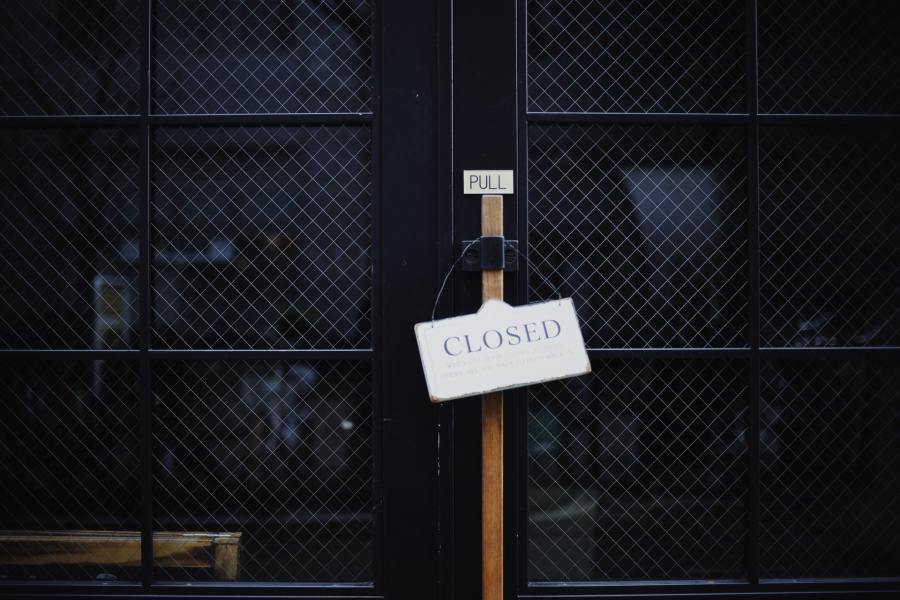We believe some potentially difficult conversations have to happen among Australian business people over the next six weeks or so about debt, which will be critical to their business relationships going forward.
What happens in six weeks? By the time this article is published, it will be about six weeks until the end of the Federal Government's moratorium on the initiating steps that a business can take to recover debt from another business through the creditor's statutory demand or bankruptcy notice processes.
From 25 September 2020 (as matters currently stand):
- if a business is owed an undisputed debt of more than $2,000 by a corporation, it will again be able to issue a creditor's statutory demand to the corporation and require it to pay or suitably compromise the debt within 21 days. Failing that, the business can apply to the relevant courts to wind up the corporation and have a liquidator appointed to it; and
- if a business holds a judgment of more than $5,000 against an individual, it will be able to seek the issue of a bankruptcy notice to the individual and require him or her to pay or suitably compromise that amount within 21 days. Again, failing that, the business can apply to the relevant courts for a sequestration order to be made against the individual's estate and have a bankruptcy trustee appointed to the estate.
At present, and since 25 March 2020, the above dollar thresholds stand at $20,000 with six months to comply, which has caused a state of inertia in the recovery of debts through these statutory processes.
With the resurgence of COVID-19 in Victoria and its move to Stage 4 movement restrictions, the economy will suffer further and it may be that the Federal Government extends the above measures and others for a longer period. My personal view is that there should not be an extension as we have to get those parts of our economy moving that recycle bad debt situations; we perpetuate the pain otherwise. Perhaps that extension will be granted only for debtors that have their principal places of business in Victoria? Constitutional lawyers will tell me whether that is possible.
It's time for business people to begin talking to each other about the debts that exist between them. It's awkward, and no one wants to be seen as unsympathetic, but it starts with a simple telephone conversation or email about the potential for repayment:
"Times are tough, I know, but can you let me know please what your intentions are to repay the amount you owe me for the widgets we supplied back in February?"
If you get a response, that's great. You're talking with your customer and you can potentially negotiate a solution, and build on your relationship.
If the answer comes back: "This coronavirus has really smashed our business. We're hanging on but I'll need to talk to you about this in a couple of months when we're back on our feet", then that is cause for some worry. Chances are you are not your customer's only creditor.
Every situation is different. As your lawyers, we would ask to look at the terms and conditions that exist between you and your customer, just to see what options may exist in the fine print. We may be able to suggest some improvements for you for the future to allow you to recover the goods you have supplied or obtain some form of security from your customers. We would also likely draft a formal letter of demand to the customer for your letterhead, so that you are ready to move if you sense that formal debt recovery steps are required. If you are reliant on that customer for a large part of your business, it may be prudent to undertake some business development activity in your industry to broaden your customer base.
If your customer does not respond at all, alarm bells should ring. For a corporate customer, we would assist you to issue a formal letter of demand on our letterhead to the corporation requiring payment in the following two weeks. Assuming no response to that, we would ensure that you are ready to issue a creditor's statutory demand from 25 September 2020 giving the customer 21 days to pay or reach a compromise with you. We would weigh up with you the pros and cons, costs versus benefits of taking the next step of applying to wind up your customer if it does not respond and to have a liquidator appointed.
If your customer is an individual, it is even more important to act promptly because you need a court judgment before you can take steps to seek the issuing of a bankruptcy notice to the customer. As you cannot get a court judgment until at least 28 days after you have filed and served a statement of claim on your customer, the time to act is now. A letter of demand is issued, a statement of claim is prepared, then filed and served. If you act now, by 25 September 2020 you can be close to being able to seek the issue of a bankruptcy notice to your customer and to take further steps from there.
Another factor to consider is that there is less than three months until the festive season once 25 September 2020 comes around and our already busy courts may well get much busier with winding up and bankruptcy applications in late October 2020. That will be when the first 21 day period expires after the moratorium ends. Then the courts will shut down around 18 December 2020 and not reopen fully until February 2021. If the debts owed to your business are large and not recovered promptly, your business may suffer a cash flow crisis of its own at the start of 2021 or sooner. That is the insidious nature of unpaid debt. When the same situation plays out across the whole economy, the recession we are in will deepen.
Thus, we are encouraging our clients to take steps now to look seriously at the debts that are owed by their customers and assess whether, for the sake of their own businesses, they ought to have the necessary conversations with their customers as to when and how those debts will be repaid. Those conversations don't have to be a negative experience and could lead to you and your customer finding new ways in which your businesses can work together.
Our team of Commercial Disputes lawyers is, of course, available to assist you where required. Our contact details are listed to the right of this article.
Author: Keiran Breckenridge, Special Counsel
Our team is actively monitoring and considering the implications of legal and regulatory developments in response to the COVID-19 pandemic. You can find our COVID-19 collection here.
All information on this site is of a general nature only and is not intended to be relied upon as, nor to be a substitute for, specific legal professional advice. No responsibility for the loss occasioned to any person acting on or refraining from action as a result of any material published can be accepted.
 Client portal
Client portal














